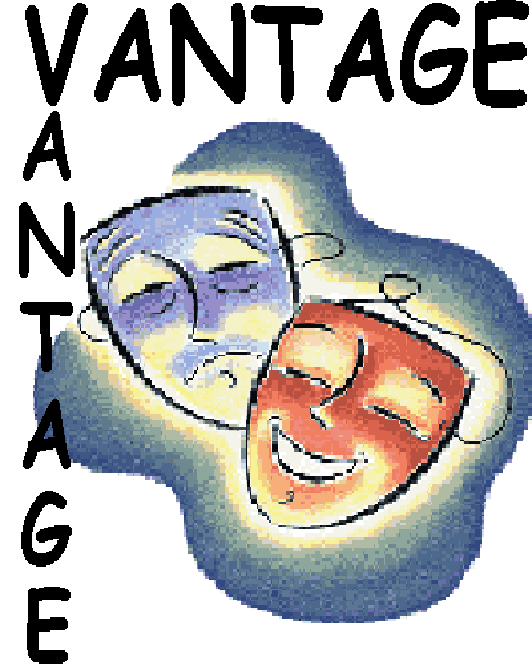
Reverse Psychology
by Charles Ludlam
"Critic's Choice"-- S.D. Union-Tribune
"Critic's Pick"-- Backstage West
"A fun and entertaining evening of irreverent theatre"-- Playbill.com
This is farce not Sunday school.
If one is not a living mockery of one’s own ideals, one has set one’s
ideals too low.
Under the guise of the Ridiculous, we attempt the Sublime
If you tell people the truth you’d better make them laugh or they’ll
kill you.
Charles Ludlam was one very serious funnyman.
He rejected labels, such as “camp,” “drag performer,”
“avant-garde"-- all adjectives that partially described but ultimately
failed to capture the true nature of this iconoclastic comic genius. Ludlam
was a true theatre revolutionary, but, unlike those pretentious artists of his
time whom he rejected, he was a great student and lover of theatre history.
“My work falls into the classical tradition of comedy.” By thoroughly
understanding the historical context of his art and by working ceaselessly to
perfect and hone his craft in his capacity as founder and reigning genius of
the Ridiculous Theatrical Company from the 1960’s through 80’s,
Charles Ludlam earned himself a place in the pantheon. Here was a modern Moliere,
an American Aristophanes whose work should be included in a line that extends
from those ancient masters. He was a member of a very select group of American
theatrical geniuses who conquered all aspects of a production, from writing,
to scenic and lighting design, costuming and makeup, casting and directing,
and virtuoso acting. This is a short list—including the likes of Chaplin,
Welles, and a handful of others.
Ludlam’s particular genius lay in the fact that he was able to lay a long-standing
theatre tradition on its head- another paradoxical reversal that delighted him
so. Traditionally, comedy has been the voice and the tool of the conservative
or the status quo. It punished the deviant and the nonconformist. They were
made fun of, and they got back in line because of a fear of being ridiculed.
Basically, comedians exhibit behavior that is contrary to societal norms. When
everyone laughs, you know not to do that.
In Ludlam’s hands, comedy became the tool of the deviant, the original,
the unique, and the forbidden. The fool has a license to say and do things that
serious people can't. He punishes the status quo to change the way we think
about things, making the normal and the conventional appear ridiculous, a travesty.
The deviant, eccentric minority thus triumphs over the norm.
“One of the greatest weapons that people use on you to get you to conform
is ridicule. It's a way that society exerts pressure on you. However, if you
take the position that you are already going to be ridiculous, they are powerless.
They ridicule you? They are doing what you want them to do. This way I use reverse
psychology. I say the play is worthless and ridiculous and meaningless, and
then the public, in its perverse refusal to do what I told them to do, insists
that it's profound, serious, important and philosophical. Whereas if I said
it was serious, profound and philosophical, they would say it wasn't.”
I was lucky enough to see the original RTC productions of Reverse Psychology
and several other Ludlam plays, featuring Ludlam himself. In fact “RP”
was the first of many delightful evenings I spent in Sheridan Square. It is
a wickedly funny satire that mercilessly lampoons two of Ludlam’s favorite
targets, the avant-garde Soho/Warhol art world of the 1960’s (of which
Ludlam took part briefly) and contemporary sexual mores (of which Ludlam took
part extensively). Primarily, however, Reverse Psychology is a scathing
send-up of modern psychiatry and the therapeutic process, which portrays the
therapists as more irrational than their patients. True to the genre, a sequence
of farcical reversals is played out leading to an ultimate conclusion, with
many hilarious surprises along the way.
---Robert Salerno